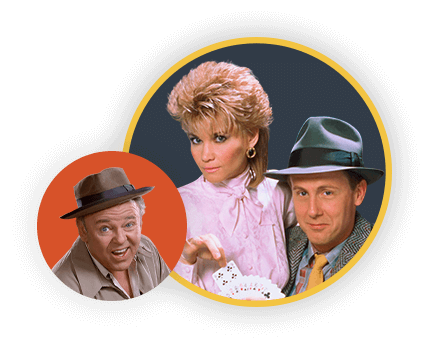Wizards and Warriors could have been the Game of Thrones of the 1980s if not for its time slot

Image: The Everett Collection
When is the first time you can remember seeing full-on fantasy on television? We're talking dragons, knights, wizards, damsels, castles, swords, elves, the whole shebang. Cartoons don't count. Sure, the sitcoms of the Sixties dabbled in magic with shows about genies and witches, but that was hardly Dungeons & Dragons.
The networks did not truly roll the 12-sided dice on a live-action, high-fantasy series until the 1980s. That makes sense. After all, D&D and the role-playing craze did not take off until the latter half of the 1970s, and even then, it was hardly mainstream entertainment. Just ask us kids who grew up playing it.
J.R.R. Tolkien's novels had struck a chord with Sixties counterculture, but overall the fairy tale genre was left to the realm of animation. Ralph Bakshi crafted his gems Wizards (1977), The Lord of the Rings (1978). Disney offered up the songless feature The Black Cauldron, which tanked and nearly killed the company in 1985. (But it's underrated.) Elsewhere, outside of the occasional King Arthur or Robin Hood flick, which are not quite the same thing, Hollywood did not take the genre seriously.
 The Everett Collection
The Everett CollectionOn the surface, Wizards and Warriors did not seem to take fantasy seriously. The series, which made its debut at the start of 1983 on CBS, packed its adventures with plenty of laughs. Ye, for the small but rabid audience that watched it, many of them D&D players, Wizards and Warriors was the first TV show to really understand the experience of playing an RPG with friends. D&D could make you laugh. It was not just speaking in "Haths" and "Doths" and firing pyew-pyew fireballs at orcs.
Don Reo, the creator of Wizards and Warriors, was not a Dungeons & Dragons player — his kids were. The producer and writer knew he wanted to make a swashbuckling adventure series. His first thought was pirates. The kids swayed him otherwise. Reo did happen to be a big fan of writer William Goldman, especially his brilliant novel The Princess Bride.
Before setting forth on making Wizards and Warriors, Reo had dinner with William Goldman and picked his brain. What he admired about The Princess Bride was the way it recontextualized fairy tales with a modern sensibility. It broke the genre out of the Renaissance Faire re-enactment mentality and gave it a pop, approachable voice. It was not merely a fantasy, but a romantic comedy in a fantasy world.
Game of Thrones, which certainly more on the R-rated end of the spectrum, is likely recontextualizing high fantasy with a modern sensibility. Strip away the dragons and direwolves, and it's a crime saga. In many ways, it's like The Sopranos or Narcos with swords.
"We never, ever considered [Wizards & Warriors] a comedy," Reo told a fan site in a 2002 interview. Which is not to say they were avoiding laughs. He was underlining the fact that they took the fantasy elements seriously. The wonderful cast, including Jeff Conaway (Taxi) and Julia Duffy (Newhart), was able to walk the thin line between spoof and solemnity.
Which might make you wonder — why did this show flop? Why did CBS air a measly eight episodes?
That would be the combination of "Large Budget + Saturday Night Time Slot," a wicked potion that has slain many a noble series. World news played a part, too, as bombings in Beirut and the "Star Wars" initiative took up much of the attention — and led to broadcasting breaks — in the spring of '83.
But perhaps it was all just a matter of being too ahead of its time. Somebody had to be the first to charge into battle.





